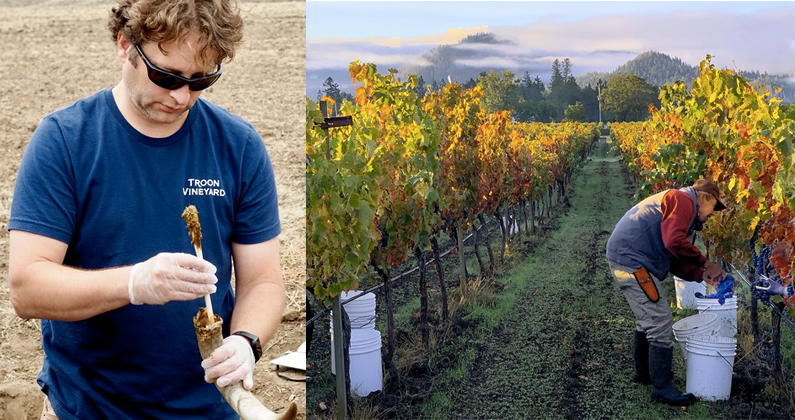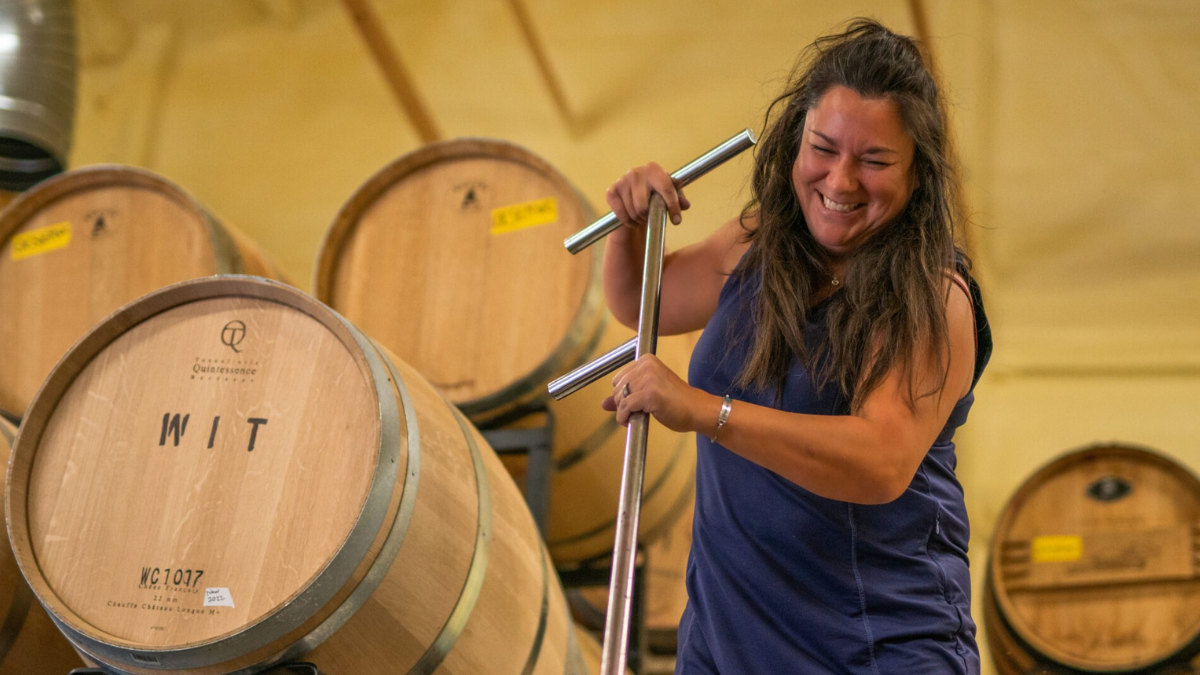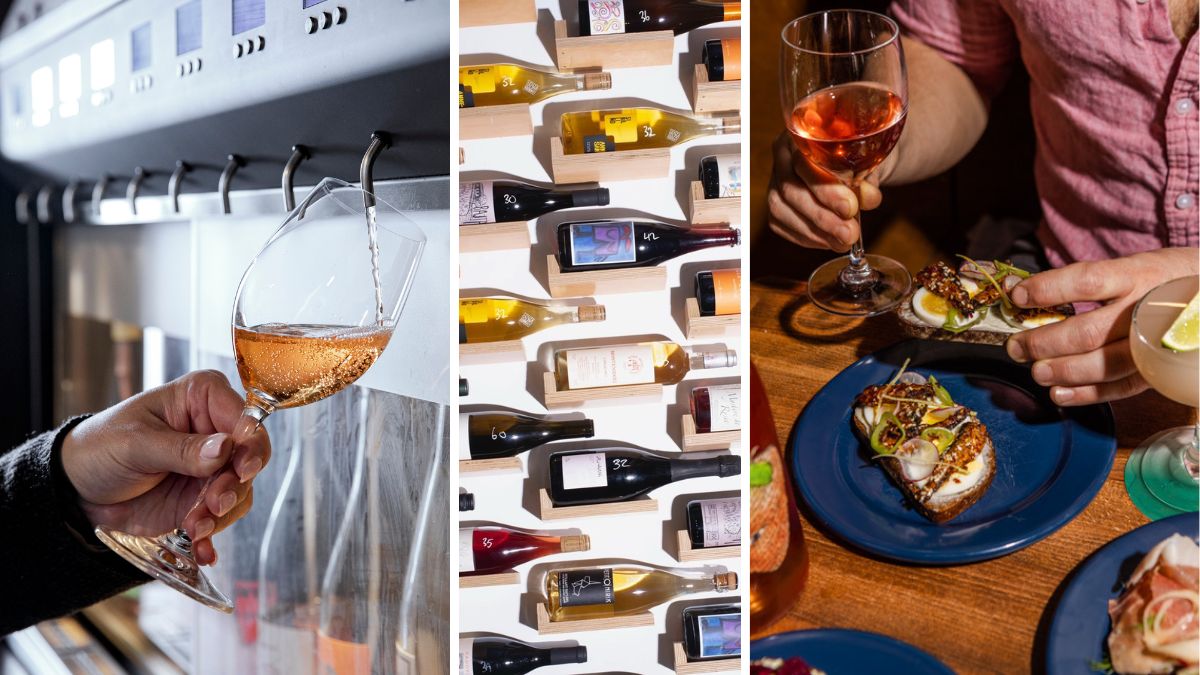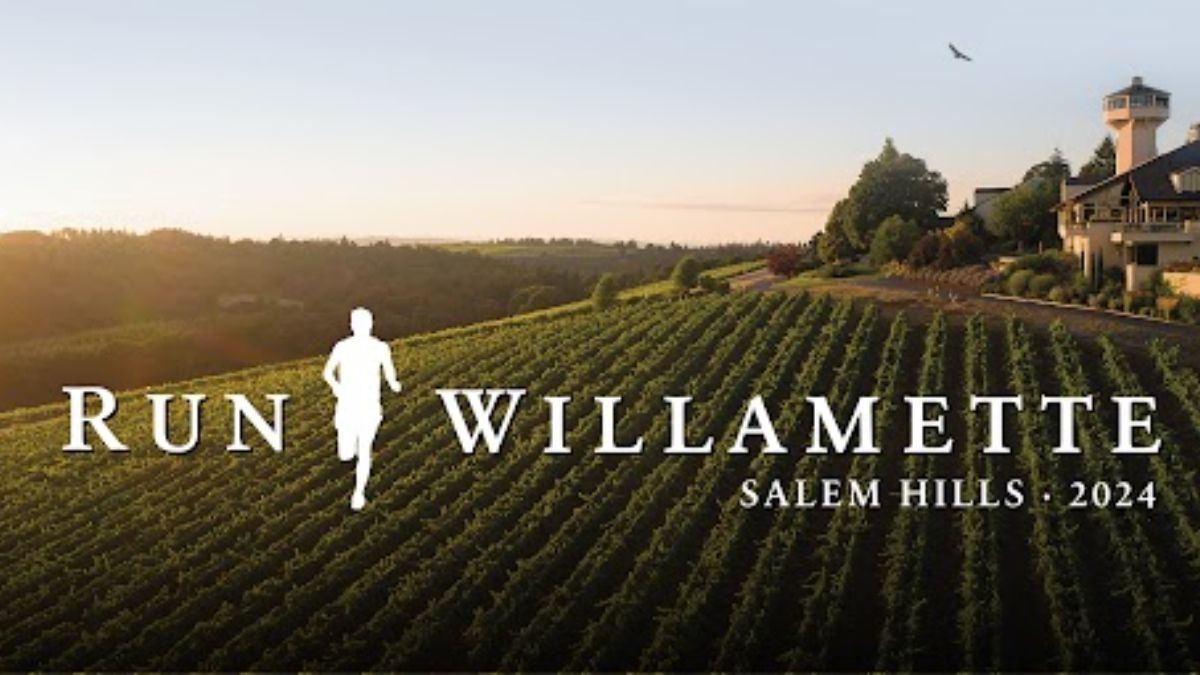Improving the quality of wine doesn’t always just take place in the cellar, sometimes it needs to be done from the ground up. Located in Southern Oregon’s Applegate Valley, Troon Vineyard has, and still is, been undergoing a complete transformation. More than just a rebrand, the estate winery has practically reinvented itself under new ownership and new leadership.
Troon’s new winemaking team is focused on biodynamics and crafting elegant, balanced wines. Winemaker Nate Wall has joined the team after work at Beaux Freres and Grochau Cellars, with assistant winemaker Cary Willeford, who worked at Littori and Quivera.
“New owners, Dr. Bryan and Denise White, have made the financial commitment to make it all happen with the goal of transforming Troon into a truly world-class winery,” says Craig Camp, winery general manager.
In the vineyards, Troon has introduced biodynamics and intensive, regenerative agriculture strategies that have transformed its soils and vines by rebuilding the microbiome. And though the team has already pulled out and replanted some of the vineyards, older and unhealthy vines have shown an increase in yield, vigor and quality. As most of the older vines are infected with the destructive red blotch virus, Troon will be replanting the entire vineyard over the next six years based on information collected from soil and microbiome studies.
Serious about turning around the site, Troon has retained Napa Valley’s Vineyard Soil Technologies to completely analyze the vineyard, and every aspect of the soil, going 75-feet deep to create a comprehensive report which the winery is using to guide planting. Faculty and graduate students from University of Oregon, Oregon State and Linfield College are involved in researching the transition from conventional to biodynamic agriculture — sampling soils, plants and wine every year to determine the changes that occur. And Troon has also engaged BiomeMakers from San Francisco to do genetic sequencing of the soils, plants and wines each year to document the transition from conventional to biodynamic.
Troon’s focus is not only on the familiar but also some more unusual varieties, ranging from Vermentino, Clairette Blanc and Grenache Gris to Mourvèdre, Carignan and Nebbiolo.
While biodynamic farming is of the utmost importance, the winery also recognizes the value of biodiversity on the estate. So, in pursuit of better soil health, and in line with biodynamic principles, Troon is expanding the range of life on the property.
Beginning February 2020, the team will plant more than 200 French cider apple trees from over 20 clones and will ultimately be producing biodynamic hard cider. A two-acre garden will also be planted to focus on producing biodynamic-certified seeds from heirloom varieties of vegetables in order to propagate, preserve and to make available for sale. A four-acre block is being dedicated to native Oregon grain varieties that will be used by an Applegate Valley brewer.
But it’s not all about plant biodiversity. Troon is also developing extensive pollinator habitats and biodynamic apiaries centered on native bee species, as well as for the production of biodynamic honey. And the company will be incorporating a herd of sheep to graze in the vineyard as it moves into no-till farming.
In the cellar, the winemaking is minimalist, using only native yeasts with no additives to ferment the wines. Used oak barrels are featured to reveal the true nuance of grapes grown in the Applegate Valley.
The winemaking program is at once classic, unique and experimental. For example, this year, the team bottled a Petillant Natural (Pet Nat) Tannat, called Pet-Tannat, the first of its kind in Oregon. And they’re using clay amphora to age orange wines.
“We are at the starting line of a long struggle to achieve our goals,” Camp says. “Now that we have taken our first steps we feel like a sprinter whose energy has just been released by the starting gun. The vines, the soil, the place, the wines and the people are all becoming one.”






